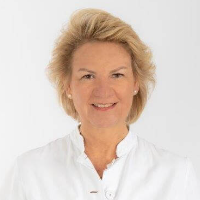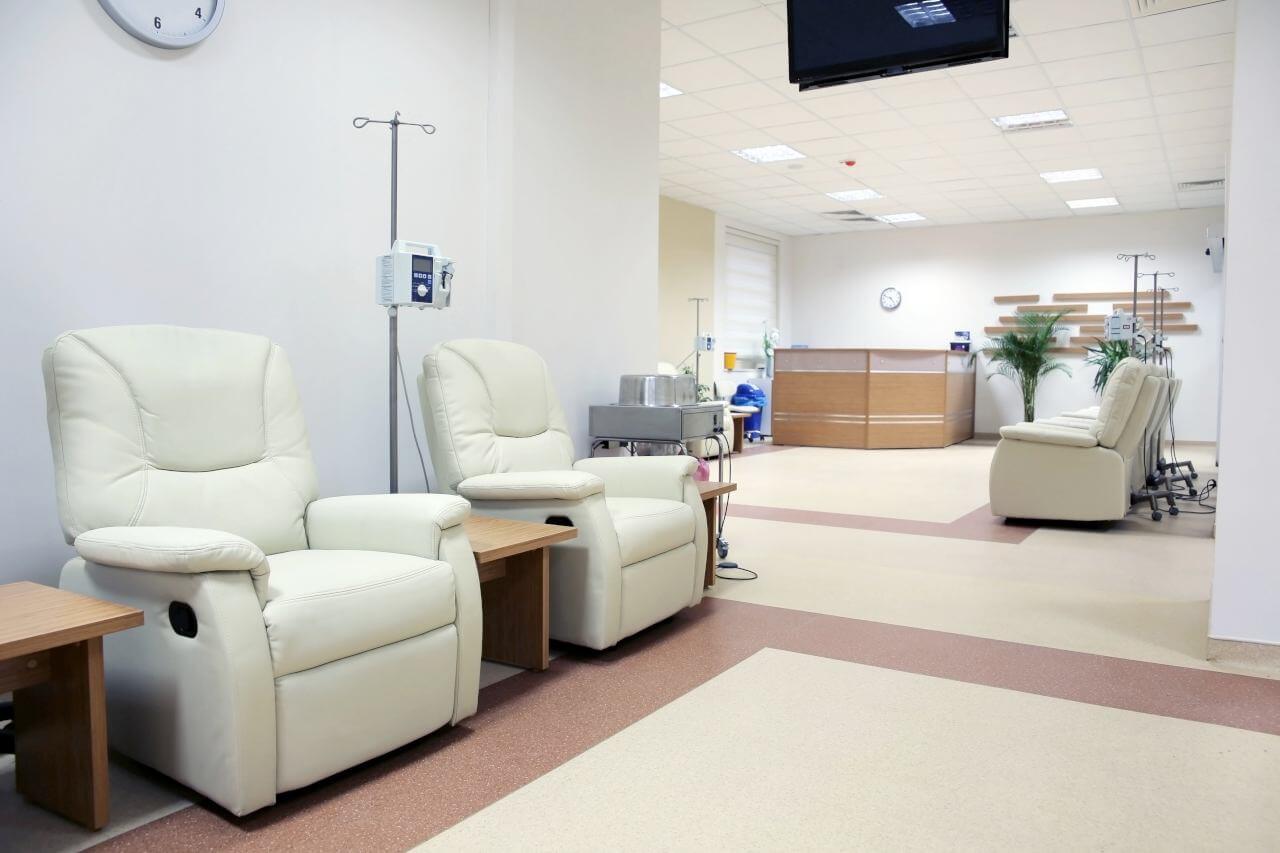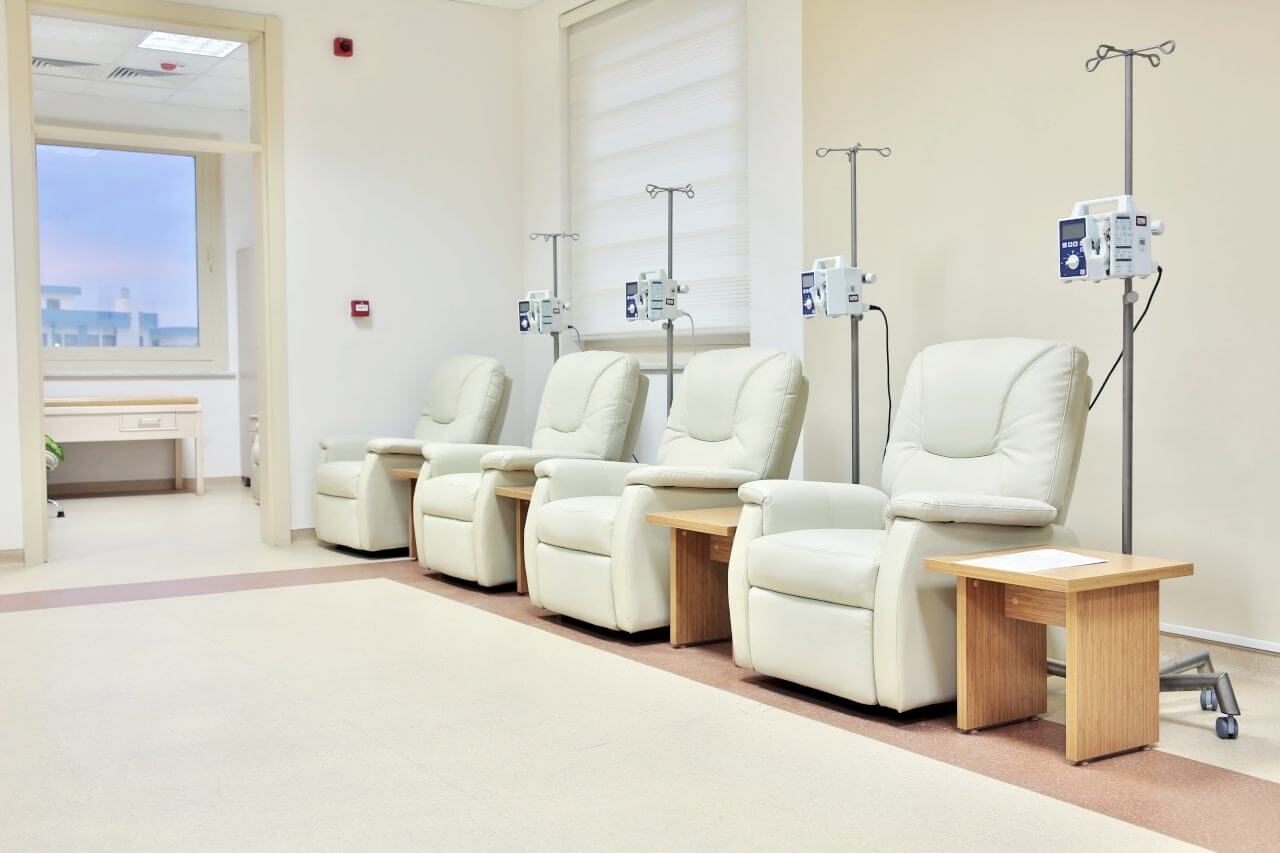
The program includes:
- Initial presentation in the clinic
- clinical history taking
- review of medical records
- physical examination
- laboratory tests:
- complete blood count
- biochemical analysis of blood
- inflammation indicators (CRP, ESR)
- indicators of blood coagulation
- TSH-basal
- blood gas analysis
- chest X-ray examination
- measurement of arterial blood pressure
- electrocardiogram (ECG)
- echocardiography (ECHO)
- conducting 1 course of chemotherapy
- the cost of essential medicines and materials
- nursing services
- control examinations
- consultations of related specialists
How program is carried out
During the first visit, the doctor will conduct a clinical examination and go through the results of previous laboratory tests and instrumental examinations. After that, you will undergo an additional examination, including laboratory assessment of liver and kidney function, ultrasound scan. Based on the received results, the doctor will elaborate the chemotherapy regimen. If necessary, related medical specialists will be involved in the elaboration of a treatment regimen (tumor board).
Chemotherapy is carried out as the day hospital procedure, without mandatory admission to the hospital. After the placement of a venous catheter, you will stay in a comfortable ward. An infusion system will be connected to the catheter, through which the required drug or a drug combination will be administered. All drugs are administered by intravenous drip, slowly, so the total duration of the infusion can be up to several hours. All this time, doctors and nurses will monitor your health condition closely.
After the course of chemotherapy, you will stay under medical supervision in the ward for a few more hours. If your general condition is good, your doctor will allow you to leave the hospital. You will receive the medical report with detailed recommendations regarding further treatment. In the future, you will be able to have a distant consultation with your attending physician and schedule the next course of chemotherapy, if necessary.
Required documents
- Medical records
- MRI/CT scan (not older than 3 months)
- Biopsy results (if available)
Service
You may also book:
 BookingHealth Price from:
BookingHealth Price from:
About the department
The Department of Oncology at the Dr. Ute Sendler Clinic Munich offers a wide range of services in its area of competence. The focus of the department's doctors is on patients with solid tumors and malignant diseases of the hematopoietic system. The specialists most often treat breast cancer, prostate cancer, lung cancer, leukemias, and lymphomas. One of the key areas of work of the department’s doctors is consulting patients with suspected cancer and providing a second opinion. The department also carries out comprehensive diagnostics for suspected cancer and systemic treatment of oncological pathologies. In the fight against cancer, the medical facility successfully uses individually developed regimens of chemotherapy, targeted therapy, antibody therapy, and immunotherapy with monoclonal antibodies and immune checkpoint inhibitors, which is an innovative cancer treatment method. The department's specialists collaborate with oncologists from the Comprehensive Cancer Center Munich at the University Hospital of Ludwig Maximilian University of Munich, which enjoys a reputation as one of the best medical institutions of its kind in Europe. The treatment complies with the requirements of the German Cancer Society (DKG).
The department is headed by Dr. med. Ute Sendler, a highly qualified oncologist with more than 20 years of successful clinical experience. She trained in the USA several times and worked for a long time at the University Hospital Rechts der Isar Munich.
The most demanded treatment in the department is chemotherapy, which is a method of systemic cancer treatment using cytostatic drugs. Chemotherapy stops the growth and division of cancer cells and prevents them from spreading to healthy organs. Before prescribing chemotherapy, the department’s specialists carry out a comprehensive diagnosis, based on the results of which clinicians determine the type of cancer and its stage and assess the advisability of chemotherapy. Depending on the patient's clinical indications, chemotherapy can be used as a stand-alone treatment method, carried out before surgery or radiation therapy (neoadjuvant chemotherapy) to shrink the size of the tumor, carried out after surgery (adjuvant chemotherapy) to destroy the malignant cells remaining in the body and prevent relapse, or be aimed at reducing the severity of symptoms and improving quality of life (palliative chemotherapy) for metastatic cancer. The department's oncologists most often administer chemotherapy drugs intravenously, but in some situations, the possibility of taking chemotherapy drugs as pills may also be considered. A course of chemotherapy consists of several cycles with breaks to allow the patient's body to recover. Chemotherapy is carried out in specially equipped, comfortable rooms under the supervision of competent physicians.
The department also conducts targeted therapy, which allows for a targeted attack on the tumor practically without affecting healthy tissue. Targeted therapy is often carried out in combination with chemotherapy and other types of cancer treatment. The action of targeted therapy is based on the use of drugs that block specific molecules in tumor cells, which allows them to be destroyed and prevents the emergence of new cancer lesions. Targeted therapy is highly effective even for advanced stages of cancer, and it does not cause severe side effects. The course of treatment is prescribed on an individual basis, depending on the molecular genetic characteristics of the identified oncological pathology. Targeted drugs are administered intravenously or taken orally. The department's oncologists most often carry out targeted therapy for patients with lung cancer and breast cancer.
The department's team of doctors successfully uses immunotherapy, an innovative method of treating cancer that has proven to be highly effective. The essence of immunotherapy is to activate the patient's own immune system to more successfully fight cancer. The department provides immunotherapy using monoclonal antibodies and immune checkpoint inhibitors. Monoclonal antibodies are active proteins in the immune system. Experts clone them in the laboratory and modify them so that they can detect malignant cells despite their "masking". Once in the patient’s body, monoclonal antibodies independently destroy cancer cells. Immune checkpoint inhibitors are medications that block signaling through immune checkpoints, allowing the patient's immune system to recognize, attack, and destroy cancer cells. Typically, immunotherapy drugs are administered intravenously. The optimal dose of the drug for the patient and the regimen of its administration are determined individually.
The department specializes in the diagnosis and treatment of the following oncological diseases:
- Breast cancer
- Uterine cancer
- Ovarian cancer
- Prostate cancer
- Lung cancer
- Stomach cancer
- Colon cancer
- Pancreatic cancer
- Bladder cancer
- Skin cancer
- Gastrointestinal neuroendocrine tumors
- Bone and soft tissue sarcomas
- Head and neck tumors
- Leukemias
- Lymphomas
- Other cancers
The department's range of therapeutic services includes the following:
- Chemotherapy
- Targeted therapy
- Antibody therapy
- Immunotherapy using monoclonal antibodies and immune checkpoint inhibitors
- Other treatment methods
Curriculum vitae
Professional Career
- 1991 Thesis defense and admission to medical practice.
- 1991 Research Fellowship, Department of Oncology, New York University, USA.
- 1991 - 2006 Professional training in Internal Medicine (focus on Cardiology, Hematology, and Oncology), Department of Internal Medicine and Heart Center, University Hospital Rechts der Isar Munich.
- 1994 Research Fellowship, Institute for Drug Development, University of Texas Health Science Center, San Antonio, USA.
- 2000 Board certification in Internal Medicine.
- 2001 Board certification in Cardiology.
- 2003 Board certification in Oncology and Hematology.
- 2004 - 2006 Physician in her own Private Practice for Oncology and Hematology in Munich.
- 2006 - 2010 Head of the Cancer Center at the University Hospital Bochum.
- Since 2011 Head Physician, Dr. Ute Sendler Clinic Munich.
Photo of the doctor: (c) Tagesklinik Dr. Sendler
About hospital
The Dr. Ute Sendler Clinic Munich is a specialized medical facility for cancer treatment. Particular emphasis is placed here on counseling patients with cancer, conducting comprehensive diagnostics for suspected cancer, and providing conservative treatment on an outpatient basis. The clinic's team of doctors has extensive experience in treating cancer with chemotherapy, targeted therapy, antibody therapy, and immunotherapy. The clinic also provides medical care to patients with hematological diseases, autoimmune diseases, and heart pathologies. The health of patients is in the safe hands of true professionals, for whom it is important to achieve the best therapeutic result in a pleasant and comfortable environment.
The clinic's doctors give preference to personalized medical care, so the patient is at the center of all the specialists' efforts. This approach is especially important in the treatment of oncological diseases because each case of cancer is unique, and it is necessary to take into account the characteristics of a particular clinical case to achieve a good result. For providing comprehensive medical care, the clinic's doctors work closely with the Comprehensive Cancer Center Munich at the University Hospital of Ludwig Maximilian University of Munich, which is one of the world's largest and best medical complexes. The clinic also cooperates with the Radiation Oncology Clinic Maximiliansplatz in Munich.
There is a pleasant atmosphere at the Dr. Ute Sendler Clinic Munich. As soon as patients cross the threshold of the clinic, they find themselves in a cozy space designed in light colors. The treatment rooms are also designed in light colors. The clinic strictly observes hygiene and safety standards.
Photo: (с) depositphotos
Accommodation in hospital
Hotel
You may stay at the hotel of your choice during the outpatient program. Our managers will support you for selecting the best option.




